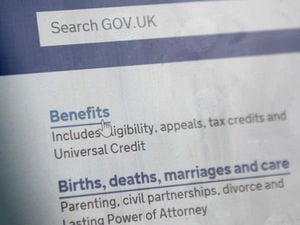What is long Covid and how can I tell if I’ve got it?
Academics have called for more support to be offered to patients and their loved ones.

More must be done to support people with long Covid and their loved ones, academics have said.
Here, the PA news agency answers the key questions about the condition.
– What is long Covid?
Long Covid, also known as post-Covid syndrome, is used to describe the effects of the virus that continue for weeks or months beyond the initial illness.
– What are the symptoms?
There are a wide range of common long Covid symptoms including fatigue, shortness of breath, chest pain or tightness, problems with memory and concentration, insomnia, dizziness, pins and needles, joint pain, depression and anxiety, tinnitus, earaches, feeling sick, diarrhoea, stomach aches, loss of appetite, a high temperature, cough, headaches, sore throat, changes to sense of smell or taste or skin rashes.
– What are the other effects?
In the latest study, 79.5% of people living with long Covid reported problems with their usual activities, more than half (56.2%) reported problems with their mobility.
– How many people are suffering?
Almost one in seven people who test positive for Covid-19 are still suffering symptoms three months later, according to estimates by the Office for National Statistics (ONS) released in April.
It is thought that more than a million people in the UK have been affected by symptoms which have lasted at least four weeks after infection.
– Who is affected?
People of any age are thought to be affected, with children as young as four and pensioners over the age of 85 reporting ongoing symptoms.
ONS data suggests prevalence of long Covid is highest among those aged 25 to 34 than other age groups.
– How long does it last?
In the latest study, by experts at Cardiff University, people were reporting effects 36 weeks – or nine months – after infection. Elsewhere some people have reported catching Covid in March 2020 and still suffering long-term effects now.
– What have health experts said?
Scientists from the UK’s National Institute for Health Research, who reviewed the available evidence of the symptoms in October 2020, believe ongoing Covid may not be one illness but at least four different syndromes.
These have been broadly categorised as: post-intensive care syndrome, post-viral fatigue syndrome, permanent organ damage and long-term Covid syndrome.
– What treatment is available?
Outgoing NHS boss Sir Simon Stevens has said there will be a long Covid clinic in each local health area in England.
People are urged to contact their GP if they are worried about symptoms four weeks or more after having Covid-19.
The NHS also has a Your Covid Recovery support tool, which offers advice and is available at https://www.yourcovidrecovery.nhs.uk/





